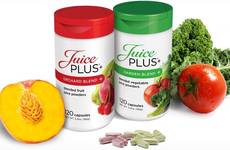By T. Colin Campbell
VegSource.com
This is Professor T. Colin Campbell PhD’s FULL presentation at the 2003 VegSource Healthy Lifestyle Expo.
In the 45 minute talk, Professor Campbell discusses the powerful evidence demonstrating that animal protein is one of the most carcinogenic substances people are regularly exposed to.
Only 2 to 3 percent of cancers are attributable to genes. The rest has to do with lifestyle, and diet is the primary driver behind several common cancers.
This is what the life’s work reveals of celebrated professor of Nutritional Biochemistry at Cornell University and one of the directors of the China Project — T. Colin Campbell, PhD.
His first epiphany came in the 1970’s when he found liver cancer was associated with a diet high in animal protein.
The Great American Diet causing cancer?? Campbell’s colleagues thought he was nuts. “Don’t go there.”
But go there he did…and beyond.
In this fascinating 45-minute talk, Campbell describes his journey from dairy rancher and animal-protein advocate…to vegan and disease prevention researcher.
Campbell’s famous research showed that cancer tumor growth could be turned on — and turned off — just by raising or lowering animal protein intake.
Hat tip to The Real food Channel.






If only people would listen to someone like Campbell. To go from dairy rancher and meat advocate to vegan and disease prevention advocate should sound a clarion call to people who are searching for truth in their dietary lifestyle. Thanx Dr. Campbell.
such an interesting report.
What is missing from the information sources, is studies on indigenous people that are hunter/gatherers. The h/g’s do have animal protein in their diets and the animal protein is treated as a “side dish”. The problem with American diets is that the animal protein is considered the main dish. We eat grass fed, locally raised beef or buffalo. What is considered an average size steak becomes two meals for us. We don’t consume more than 3 or 4 oz at a meal. I tried the vegetarian diet and became very ill. As I found out later, the biggest problem was wheat gluten. Many meat substitutes are high in wheat gluten and MSG. Since I’ve add small amounts of animal protein, my cholesterol went down, significantly. The animal protein that I eat is high in Omega 3’s because of the grass that the animal eats. Professor Campbell makes some really good points and I am definitely going to begin to eliminate milk products (good bye cheese 😦 ) from my diet.
I believe that humans are omnivores. Some humans do better on a vegan diet whereas some humans do better on a diet that includes some quality animal protein. We are the same and yet we are not completely the same. Thank you for your great blog.
thanks for your kind comments, Cats… glad to hear of your experiences. I do eat very little meat and dairy – compared to my father, for example. But I’d say it’s at least 25% of my diet.
the good doctor suggests 10%… that’s something to strive for, I guess